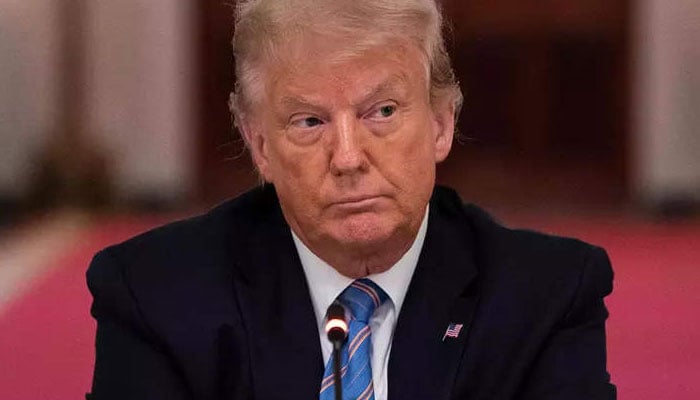Trump faces espionage act charges: What you need to know
Trump's Espionage Act charges revolve around the unlawful retention of sensitive national defense documents
Former US President Donald Trump is facing criminal charges under the Espionage Act, with 31 out of 37 counts related to secret or top secret classified documents.
The Espionage Act, passed in 1917, criminalises the mishandling of government records related to national defense, and has been historically used to prosecute whistleblowers and individuals who improperly retain classified information.
Republican lawmakers, including Senators Lindsey Graham and Marco Rubio, argue that Trump should not be charged as a foreign spy since he did not conspire with America's enemies.
"You may hate his guts, but he is not a spy; he did not commit espionage," said South Carolina Republican Senator Lindsey Graham.
Florida Republican Senator Marco Rubio echoed that defence, saying Mr Trump did not conspire with America's enemies to harm national security.
"There's no allegation that he sold it to a foreign power or that it was trafficked to somebody else or that anybody got access to it," said Mr Rubio.
Prosecutors in Trump's case will need to prove that he willfully retained the material and failed to deliver it to the proper government officials.
It is important to note that the Espionage Act is not limited to prosecuting spies or individuals involved in espionage activities. Instead, it encompasses a broader range of offenses, including the improper retention of national defense information.
Prosecutors do not need to prove that Trump was aware of the classified nature of the information he retained. Rather, they must demonstrate that a reasonable person would have recognised the sensitive nature of the documents. The focus is on Trump's willful retention of the information and his failure to deliver it back to the appropriate authorities.
Trump's defense team argues that he should not be charged as a spy, as the Espionage Act has historically been used to prosecute individuals who intentionally harm the country or provide information to foreign powers. They assert that Trump's actions did not fit this pattern.
It is worth noting that the Espionage Act has been utilised in high-profile cases involving whistleblowers and individuals leaking classified information. Notable examples include Julian Assange of WikiLeaks, Chelsea Manning, and Edward Snowden. However, the application of the Espionage Act to a former US president is unprecedented.
The legal battle surrounding Trump's Espionage Act charges will likely hinge on key aspects such as whether Trump willfully retained the information and failed to surrender it despite multiple requests. Additionally, evidence of his attempts to conceal or destroy the records may play a significant role in the prosecution's case.
As the case unfolds, it will provide an opportunity to examine the boundaries and interpretations of the Espionage Act. The outcome will have implications not only for Trump but also for the understanding and future application of national security laws in similar contexts.
-
Suspect detained as authorities probe Nancy Guthrie’s abduction
-
Tumbler Ridge tragedy: Nine killed, 25 injured after school shooting in British Columbia
-
Who owns the Ambassador Bridge? New report links owner Matthew Moroun to Trump’s threat
-
ICE detention center plan sparks controversy in Maryland as lawmakers push back
-
Blood pressure medication recalled after wrong tablets found in bottles
-
Wind chill returns with brutal cold as polar vortex stalls over Canada
-
Costco $20 rule explained as employee pay climbs across North America
-
Tumbler Ridge school lockdown underway as RCMP investigate school shooting












